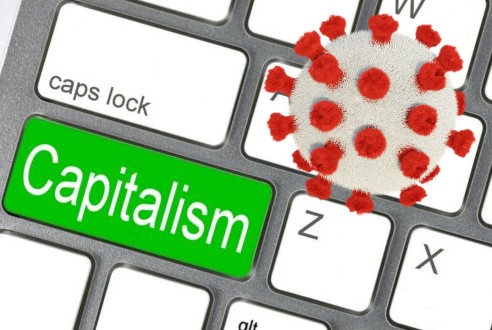4 January 2020 | OPINION
As we approach a year of living under the spell of coronavirus, each country’s battle lines have been drawn in their attempt to control the virus. What has been interesting to observe is the trends in the responses between countries and why they opted for their varying courses of action. In particular, analysing the effect that ideology has played in dictating these decisions is both fascinating and significant for recognising the often hidden impacts of these measures.
Perhaps there is no starker contrast between the responses to the virus than in the United States. Due to the federalised nature of the US political system, the local governors played the largest part in deciding the courses of defence against the virus. This is coupled with the fact that the highly polarised state of US politics has exacerbated the contrast in responses.
Very roughly, the democratic strongholds of California, New York and the like all opted for the full lockdown special. These policy decisions were echoed by the then-Democrat nominee Joe Biden and Speaker of the House Nancy Pelosi. On the other hand, the Republicans very quickly turned from the original position of fear-induced lockdown to the gradual reopening of the economy.
Superficially, the divergence could have been caused by the fact that the virus came during an election year. It would be easy to suggest that Democrats simply wanted to detract from Trump’s economic achievements by crashing the economy. Alternatively, it could be suggested that Trump only kept the economy open in order to give people hope before arriving at the ballot box. There may be some truth to this, but a month on from the election, these battle lines do not seem to be waning in any serious way – even since the news of the vaccine roll-out.
Hayek, in his work ‘The Road to Serfdom’, details the connection between economic autonomy and personal liberty. His primary contention is that the erosion of economic liberty will eventually bring tyranny. His idea is that the more power an electorate gives to its government, the more control that government will have over the individual.
I would argue that, with growing government intrusion into the pockets of the citizen, governments have also started attempting to control how we live our lives. This leaves a government feeling more responsible for the individual than the individual feels for themselves.
When translated to our current context of the coronavirus, it could be argued that the more capitalist administrations around the world have opted for more liberal approaches to tackling the crisis, whereas the left-wing orientated leaderships have opted for the stronger, more authoritarian lockdown approaches.
This helps to explain why Florida’s Republican Governor, Ron DeSantis, has promised that there will not be any more lockdowns, whereas New York’s Democratic Governor, Andrew Cuomo, has kept New York in lockdown, even keeping schools closed.
Similar debate factions are opening up here in the UK. The fact of the matter is that, at the present time, the right wing of the Conservative Party are operating as the only true opposition to the leadership in Parliament. Over fifty Tory MPs voted against the Government on the rehashed tiers system, while most of the Labour Party only abstained from the vote. Even this seemed to be more on the principle of opposition rather than any ideological difference.
The Labour Party has only very slightly diverged from the Government’s position on lockdowns. To all intents and purposes, they are currently operating on the same wavelength. It is not a coincidence that this is the same Tory administration that produced a high-spending budget before the pandemic hit, and has been very impulsive when it comes to government spending in general.
Beyond Parliament, it is the self-identified free marketeer Nigel Farage and the businessman Richard Tice who have been leading the anti-lockdown political cause. There also seems, unsurprisingly, to be somewhat of a divide between public and private sector workers on this issue. Those who rely on market freedom for sustenance have greater need of their liberty in order to earn money than those who simply rely on the Government for employment.
It is also worth looking at how socialist institutions are being used to implement these measures. The use of the National Health Service as a ploy to assert government power is not coincidental. It is precisely because the NHS is a nationalised industry that politicians can manoeuvre it for the Government’s own ends. Throughout the pandemic, the NHS has been used as a pawn by the Government to keep us under lockdown conditions.
Through the mechanism of the National Health Service, we have put our health in the hands of the Government, employing them as our nanny. Under the normal conditions of a free market economy, there is mutual agreement between the buyer and supplier. This means that the supplier will always have to adapt to the needs of the consumer. However, due to the nationalised nature of our National Health Service, the Government holds all the levers of power, which allows it to dictate the public for its own needs. That takes power away from the individual and puts it into the hands of the Government.
This method of operation has been used before in different contexts. The Government seeks to regulate our eating and drinking habits through the sugar and alcohol tax, again using the NHS as its justification. While other forms of healthcare adapt to society, our Government makes society adapt to its healthcare.
What all of this seems to indicate is that there is a significant correlation between the surrendering of economic independence to the Government and more authoritarian responses to societal issues. This goes some way towards explaining the divergence in responses to coronavirus in America. It also reveals how socialist institutions are being used to justify the intrusive actions of our own Government here in the UK.
























